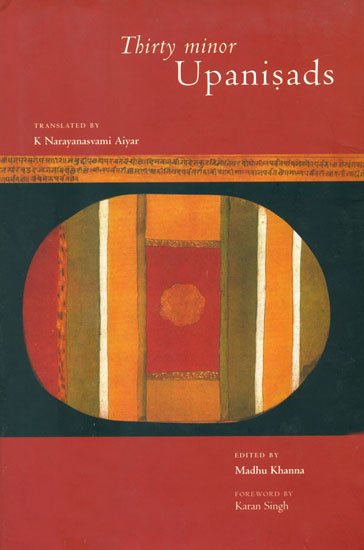Thirty minor Upanishads
by K. Narayanasvami Aiyar | 1914 | 95,228 words
This book contains the English translation of thirty minor Upanishads.—Fourteen belonging to Vedanta, two are categorised as Physiological, three are Mantra, two are Sannyasa and the remaining nine are categorised as Yoga-Upanishads. These Upanishads are properly defined as the Aranya-portion of the Vedas (most ancient Hindu scriptures) and are so-...
Subala Upanishad of Shukla-yajurveda, Chapter XIII
"The wise man should conduct himself like a lad, with the nature of a child, without company, blameless, silent and wise and without exercising any authority. This description of Kaivalya is stated by Prajāpati. Having found with certitude the supreme seat, one should dwell under a tree with torn cloths, unaccompanied, single and engaged in samādhi. He should be longing after the attaining of Ātmā and having attained this object, he is desireless, his desires have decayed. He fears none, though he finds the cause of death in such as elephants, lions, gadflies, musquitoes, ichneuma, serpents, Yakṣas, Rākṣasas, and Gandharvas. He will stand like a tree. Though cut down, he will neither get angry nor tremble. He will stand (or remain) like a lotus. Though pierced, he will neither get angry nor tremble. He will stand like ākāś; though struck, he will neither get angry nor tremble. He will stand by Satya (truth), since Ātmā is Satya.
"Pṛthivī is the heart (or centre) of all odours; āpas is the heart of all tastes; tejas is the heart of all forms; vāyu is the heart of all touch; ākāś is the heart of all sounds; avyakta is the heart of gītās (or sounds); mṛtyu is the heart of all Sattvas; and mṛtyu becomes one with the Supreme. And beyond Him, there is neither Sat nor asat, nor Sat-asat. Thus is the exposition of Nirvāṇa; thus is the exposition of the Vedas; yea, thus is the exposition of the Vedas."
